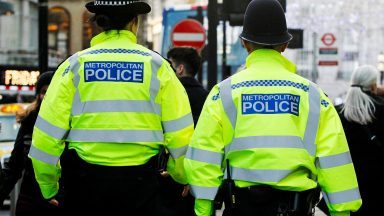Winter is coming and as the nights grow colder, we all start thinking about when we should switch the heating on.
The cost-of-living crisis – with its high energy bills – has turned what used to be general seasonal small talk into something more consequential.
When the crisis was at its peak last year, people were making decisions between heating and eating and this winter, although the crisis no longer dominates headlines, those tough decisions remain.
There is no question that the increased cost of living affects us all but, as was seen during the Covid-19 pandemic, the ethnic minority population is disproportionately impacted.
These racial inequalities become highlighted during moments of crisis as anomalies, however, they form the standard fabric of our society.
Scottish Government poverty statistics show that ethnic minorities, who make up 4% of Scotland’s population, experience the highest rates of poverty in the country.
The number of White Scots experiencing poverty has remained stable between 2020 and 2022 at 18%, while the ethnic minority population has experienced deepening inequalities with Mixed and Black populations seeing an increase in poverty representation from 43% in 2020 to 48% in 2022 and British Asian/Asian groups from 41% in 2020 to 49% in 2022.
Child poverty is also most prevalent in ethnic minority households at 39% than in all other priority groups, such as 28% of households with a disabled member and 38% of single-parent households.
Some of these characteristics of vulnerability can sometimes overlap to create intersecting disadvantages, for example an ethnic minority, disabled, single-parent household would face compounding inequalities.
These disparities are some of the factors that have made the cost-of-living crisis especially severe for this demographic, who were already financially vulnerable with little or no savings to buffer against unexpected costs.
The Scottish Government’s cost of living crisis analytical report shows that these low-income households are more likely to spend a larger proportion of their income on essentials that are subject to inflation.
When assessing drivers of poverty in the ethnic minority population, discrimination is highly implicated because although the government’s school leavers survey and the Scottish census show that the ethnic minority population have strong educational outcomes, with 59% of ethnic minority Scots having qualifications at degree level or higher compared to 35% of White Scots, these attainments do not translate to commensurable employment.
Research by the Coalition for Racial Equality and Rights (CRER) has revealed that ethnic minority graduates are three times more likely to be unemployed than their White peers.
General employment is perennially lower among ethnic minority Scots, with the latest annual population survey showing the employment rate of those aged 16 to 64 estimated at 62.1% compared to 73.9% for White Scots.
In addition, ethnic minorities are overrepresented in precarious low-paid jobs. The Office for National Statistics (ONS) has also reported that there is an ethnicity pay gap of 10.3% in Scotland, meaning that ethnic minority Scots are paid less than white Scots in similar positions.
These differential labour market factors all converge to produce unfavourable economic outcomes that place ethnic minorities in financial peril.
Although inflation has eased from 11.1% since the beginning of the crisis to its current level of 6.7%, housing and rental prices have soared, putting a strain on already stretched budgets.
Ethnic minorities are disproportionately represented in the private rental market making them subject to higher housing costs.
The ONS recently reported that four in ten rent and mortgage payers currently have difficulty keeping up with payments, with 25% of White adults reporting hardship compared to 52% of Black/Black British adults, while 69% of Black/Black British, and 59% of Asian/Asian British groups were struggling to afford their energy bills compared with 44% of White adults.
These stark and rising racial disparities are deplorable.
Following the various Covid-inequalities reports and the global protests that roused us all to the widespread scourge of racism, there was much talk across the political spectrum of addressing race-based inequities.
But a few years on and another crisis shows that not only have there been very little improvements for ethnic minorities, but some inequalities have worsened.
A fairer Scotland for all requires that we confront racism as a real but unacceptable canker in our society. Acknowledging and addressing racial injustice must go beyond rhetoric into tangible action that safeguards vulnerable groups, to build a just and equitable Scotland of which we can all be proud.
In the meantime, as the days grow shorter and frosty – it’s important to know that there is a hidden crisis of race inequalities unfolding within the evolving cost of living crisis, which means winter will be even more bitter for some members of our society.
Biography
Khutso Dunbar is a Public Health and Social Policy doctoral researcher at the University of Strathclyde investigating the role of community-based organisations and activist led initiatives in mitigating the inequalities faced by racialized minority women impacted by poverty and/or adverse mental health in Scotland.
Her overarching research interests are in how gender and racialised identity inform mental health outcomes, socio-economic status and lived experience in general as well as evaluating policy as a site for social justice.
Pass the Mic
This is an authored option article in partnership with Pass the Mic.
Pass the Mic works with women of colour who are experts in their field – educators, academics, researchers, campaigners, policymakers, community activists, writers, workers, carers and many more.
It aims to make a tangible change across media in Scotland by increasing the representation of women of colour who participate in it, and by improving how women of colour and the issues that impact them are talked about.
For more information on Pass the Mic, click here.
Follow STV News on WhatsApp
Scan the QR code on your mobile device for all the latest news from around the country




























